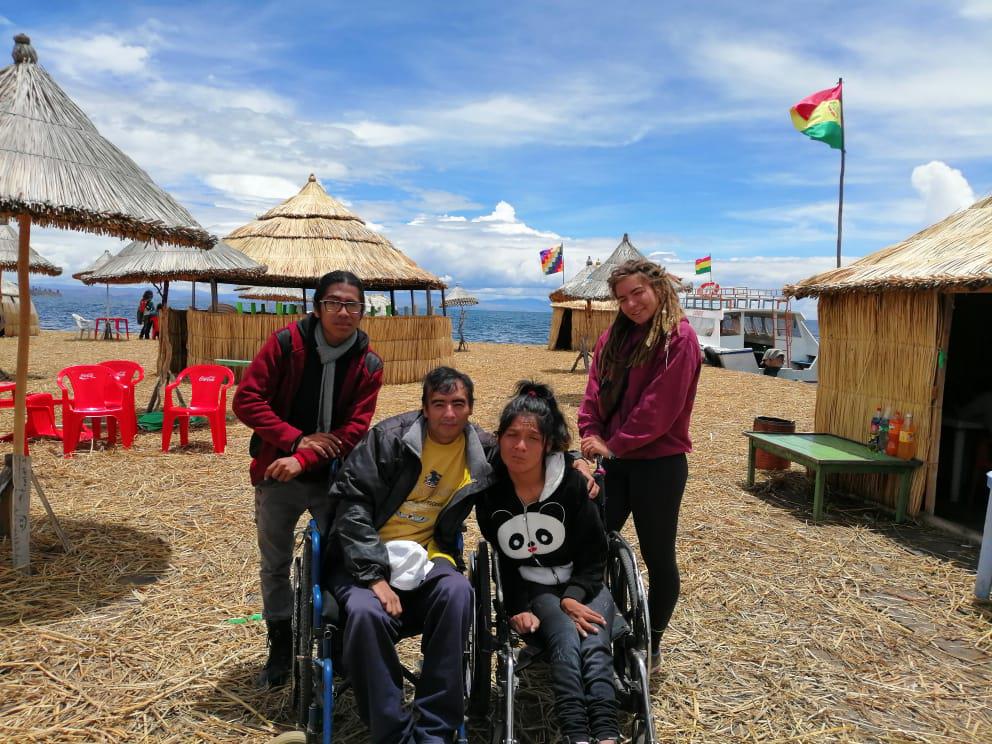Advanced life-skills training for wheelchair users
- Solution
- Programa Vida Independiente (Independent Living Programme)
- Organization
- Nueva Esperanza Association of People with Physical Disabilities
- Country of Implementation
- Bolivia
- Region
- Latin America & Caribbean
- Subregion
- South America
- Start Year
- 2012
- First published
- 10.02.2023

Solution details
“Before, I saw my disability as a misfortune. Now that I know the philosophy of independent living, I think that I am lucky!” Fidelia Feliza Ali Ramos, Founder, Association of People with Physical Disabilities “New Hope”
In 2012 the Association of People with Physical Disability “New Hope” (APCDF), a Bolivian NGO, launched an independent living programme in the city of Sucre. The programme provides personal assistance, peer support, and skills training, ranging from reading exercises and personal accounting to rights and decision-making. The practice has been recognized nationally and became part of a new labour law in 2017. Between 2012 and 2022, 25 persons with disabilities were transferred to independent and community living.
Problems Targeted
People in Bolivia with physical disabilities often find it challenging to live independently due to the lack of support systems.
Solution, Innovation and Impact
APCDF started an independent living programme that teaches persons with physical disabilities, mostly wheelchair users, life skills such as how to manage their accounts, how to do shopping, and how to become informed about their rights, duties, and responsibilities. APCDF started with wheelchair users and plans to extend the services to persons with visual impairments. Since some of the participants from rural areas lack basic educational skills, APCDF also offers reading and writing courses. To qualify for this assistance, a person with a disability has to complete a form explaining what kind of support he/she needs, such as bathing, housekeeping, cooking, etc. An assigned assistant is then in charge of supporting the persons in these activities. The assistants, who are mostly university students, keep a diary of the service hours and the activities they have provided. The personal assistance hub manages individual plans, hours of assistants, signature sheets, and monthly reports. The programme also identifies people with disabilities to train them as activists and leaders. Between 2012 and 2022, Programa Vida Independiente has supported more than 500 people with disabilities.
Funding, Outlook and Transferability
The independent living programme is supported by the Japan International Cooperation Agency via in-kind services, such as scholarships for the courses. The organization also regularly conducts fundraising activities such as Christmas campaigns. The programme has already been shared with the NGO Centro Morpho in Costa Rica, and also plans to start more independent living centres in provincial cities of Bolivia. In 2021, APCDF started to lobby for better legislation on independent living.
Media
Related information
- Connections
- 2
-
Organization
- People